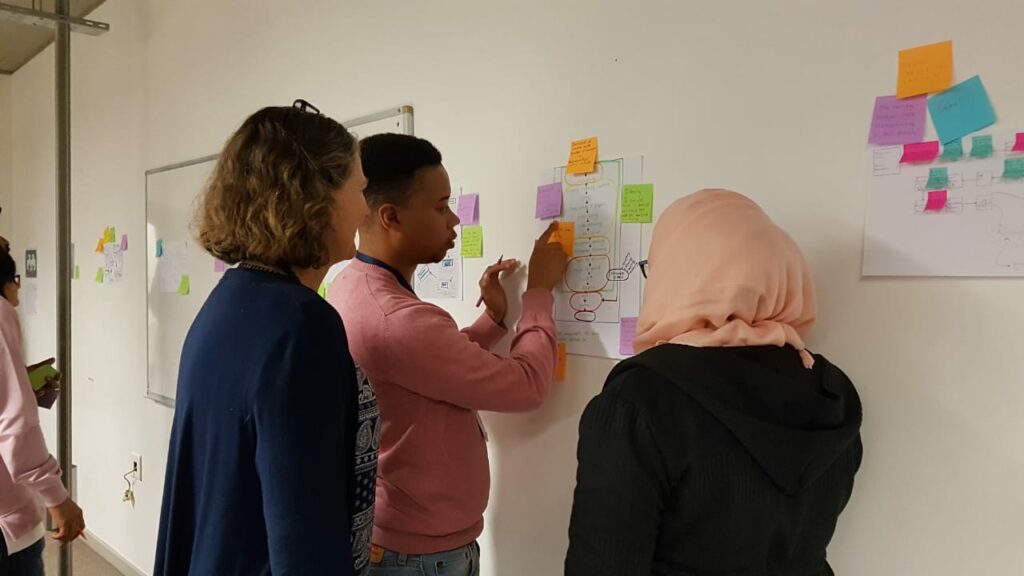
BLOG TEXT #2
WHAT IS THE CLIMATE FRESK?
The societal development of the past 100 years has shown that tackling climate change, global warming and other ecological issues is an essentially communal task. Of course, as all large societal changes, it starts with the individual: the movement relies heavily on the average person that decides to use less energy, to create less waste and to be more mindful about the level of sustainability in their way of living – and with that, the strength of the climate movement grows in line with the number of individuals that participate in it. However, people are and always have been a species that lives in various communities – an individual is almost never completely alone. One can here think of communities such as families, companies, offices, friend groups, households, schools, universities, or even simply of the population of a given village/city/country/continent. Each of us are bound to be a member of at least one of these categories of communities and usually even more than one.
With this argument of human communities in mind, it should be argued that the teaching of environmental awareness should not always be linked to the individual – in fact, it would be more beneficial to focus on one or more of the communities mentioned above. A group of people coming together, each of them not only discovering the intensity and the difficulties regarding ecological issues, but also gaining an understanding of what they can do individually and collectively will result in a deeper level of ecological awareness and a more immediate response in terms of lifestyle change towards a more sustainable way of living. This point, I believe, is especially true for groups of people living and/or working together, as the energy use and waste production of such communities can be more accurately measured as a collective, rather than on an individual level.
The ideology of enhancing eco-awareness through community education is represented in the goals and methodology of the Climate Fresk. The Climate Fresk is a French non-profit organisation, created by Cédric Ringenbach, that offers workshops for smaller groups in regards to eco-awareness. Each workshop has a length of approximately 3 hours and is led by experienced and knowledgeable volunteers (“facilitators”) passionate about protecting the environment from climate change. The goal of a Climate Fresk workshop is not only to teach groups about ecological issues, with a special focus on our changing climate system, but also to inspire and empower participants towards taking high-impact climate actions by understanding their surroundings and shaping their lifestyles to become more sustainable. Since its inception in 2018, the popularity of Climate Fresk has grown exponentially, as today the workshop is available in 157 countries and 45 languages, with approximately 70,000 facilitators and more than 1.5 million participants.
A Climate Fresk workshop always consists of three parts, the sequence of which can vary based on country, organisation or facilitator. As an example, I have taken a look at the Climate Fresk workshop facilitated by the UK organisation, Climate Clarity. Their workshop (as all Climate Fresk workshops) guides participants through reports made by the Intergovernmental Panel on Climate Change (IPCC) and their three phases are labelled “The Climate System”, “Connecting” and “Action”. The Climate System phase is structured around the interactive card game offered by the Climate Fresk organisation. Participants are asked to put cards of “cause and effect” in order, revealing the ecological impact of human activity on the environment and our planet as a whole. Facilitators serve as helping hands through this process, while also providing additional insights and perspectives to deepen the participants’ understanding of the severity of this human impact. In the “Connecting” phase, participants and facilitators sit together and discuss the emotions that can arise from hearing about this severity, as gaining a first understanding can result in despair and hopelessness. However, by giving these emotions a space to boil and then simmer down, participants have a better chance to move from despair to action. In “Action”, participants are invited to a session of brainstorming, in which they can draw up a plan of high-impact environmental action that can birth the best results in their respective industry (if the participants are members of a work team). All three phases rely profoundly on the power of a community, proving that by working with, hearing and actioning one another, a group’s collective eco-awareness and motivation towards environmental action yields greater results than individual climate action.
The further great thing about the Climate Fresk is that not only anyone can participate, but also anyone can become a facilitator! These volunteers are invited to a course on the company’s website and are then eligible to receive the interactive card game that is so important in the workshop’s first phase. After this, they are able to lead a workshop all over the world, wherever and whenever they want (for example, it is possible to hold a workshop even in a moving train), as the interactive card game is available in a smaller, pocket-size version as well. Volunteers even get a chance to be a little creative near the end of their individual workshop, as some elements can be tailored around their own way of working, as long as the overall education still fits the project’s original goals.
If you have any questions regarding the Climate Fresk, or if you would like to organise a workshop for your class, company, group of friends (or any community you feel a part of), please reach out to one of our project managers, Tess Posch, who is a licenced Climate Fresk facilitator! You can reach her at the email address [email protected], or in the direct messages of any of our social media channels!
Zoard Honeczy
